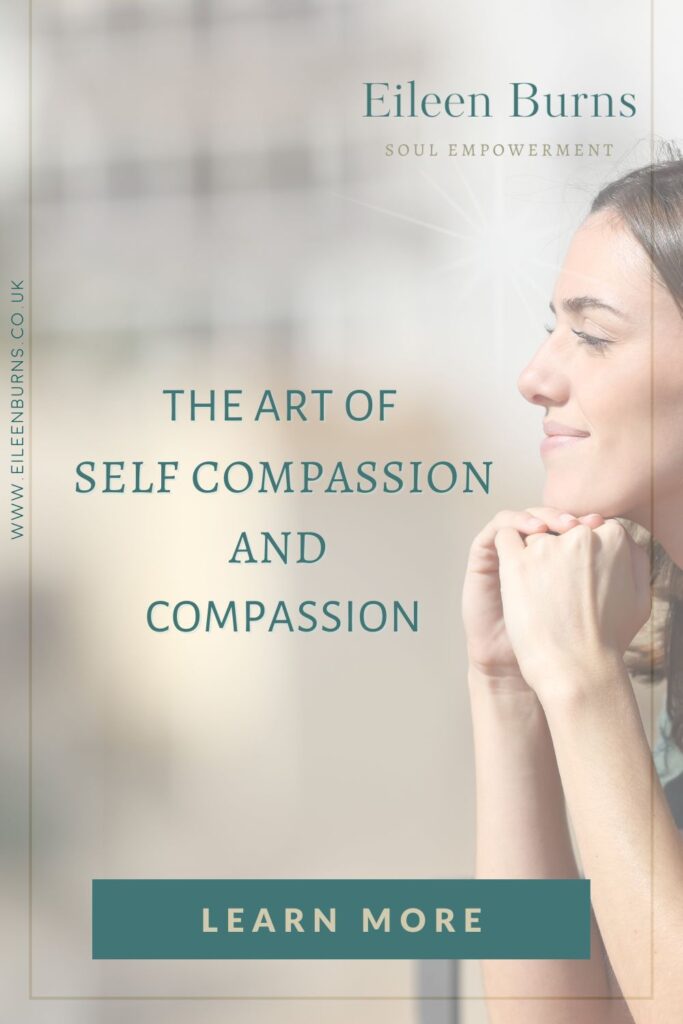Cultivating More Self-Compassion And Compassion In The World
The Art Of Self-Compassion And Compassion. Why compassion for ourselves and others is so important, especially during this time of awakening and ascension?
How to find self-compassion for ourselves and others without suffering from compassion fatigue?

What Is Compassion?
Compassion is the strong emotional feelings we have in relation to another person’s pain and human suffering, whether that be emotional, mental, physical, or spiritual pain.
What Is Self-Compassion?
Self-compassion is having the same level of compassion and positive regard for ourselves that we have for other people. Some say it is a form of goodwill towards ourselves as it involves helpful thoughts, kindness, and a deep caring for oneself.
Why Is Self-Compassion So Challenging?
But why is self-compassion such a struggle for so many people, especially empaths and those in the caring professions, who show so much compassion for others on a daily basis?
Like everything in life, there are many reasons we can struggle with self-compassion, as much as we can also suffer compassion fatigue.
Common challenges with self-compassion are often linked to an inability to look at our own trauma, our own pain, distorted beliefs, and unhealthy patterns.
This can lead to unhealthy expectations of self and others, which can cause a lot of inner conflict, that leaves us believing that we all need, must, or should be super perfect, superhuman, be there more for others than ourselves.
Which can lead to all sorts of problems such as burn out, illness, resentment and compassion fatigue.
There is a general view that a lack of self-compassion stems from poor self-worth and self-esteem. Though, according to Professor Kristin Neff, 5 Myths Of Self Compassion one of the biggest problems is actually an over-emphasis on self-esteem.
She has a very valid point, in relation to the personal development and coaching industry which often implies self-esteem, as something you achieve through striving, and goal-setting, in relation to building self-confidence.
When one over-identifies with the human self, the egoic self rather than our soul essence and god spark we are more likely to suffer from human burnout and compassion fatigue. Which is so prevalent in the health and caring industry.
Why We Need More Self-Compassion For Ourselves
During this period of awakening, when there is so many shifts in the collective and shifts within ourselves we need more self compassion and more self-love to help us heal and evolve.
Compassion comes from love, we all need more self-love during this periods to help us heal and forgive ourselves for lack of awareness and poor discernment. We need more love self-love and love for humanity to raise our consciousness.

Signs Of Compassion Fatigue
Compassion fatigue can show up in all sorts of ways, here are some common symptoms of compassion fatigue
-
Depression and Mood Swings
-
Detachment
-
Exhaustion
-
Lack Of Self Care
-
Overwhelmed
-
Procrastination and Poor Time Management
8 Tips For Developing More Self-Compassion
Loosen Our Over Identity With The Human Experience: One of the wisest things we can do is to learn how to loosen our over-identification with the human experience. And nurture a deeper connection with our spiritual self.
Every single one of us has human challenges, weaknesses, and vulnerabilities to face. It is easy for us to judge ourselves or others harshly when we over-identify with the human aspect instead of the soul. When we can find the wisdom to view human conditioning from a more spiritual or awakened perspective the easier it is to bring in objectivity and more compassion to ourselves and others
Develop An Open Heart: An open heart moves us out of judgment and self-judgment. It helps us move out of polarity, out of I am right, you are wrong. I am weak your strong or vice versa. It moves out of any competition or needs to be anything or anyone, into the ability to radiate true love including ourselves.
Deepen Your Soul Connection: A good soul connection starts with a good heart connection, it helps us be guided by our soul of what is right for us and what is not.
Identify Your Main Shadow Archetypes: Identifying the main shadow archetypes that are withholding compassion can help reveal a lot about our triggers. For example, if we see the Martyr, Rescuer, Judge, Ruler, Victim, or other archetypes at play, we can see what distorted narratives and patterns need to be balanced. While doing shadow work it is important to do be more self compassionate towards ourselves and others.
Heal Your Inner Child: Healing your inner child trauma with deep self-compassion and spiritual maturity helps us heal unhealthy distortions of how we must, should, or need to be. It also helps us heal certain expectations we put on others.
Other than actively getting the right help and support to heal our inner childhood wounding. There are a variety of natural essences and essential oils that can support us Ylang Ylang Oil is a useful essential oil that helps soothe and comfort the inner child.
Become More Present: The more present we can become in our own lives, the more mindful, aware, and present we become to our mental and emotional triggers. The easier it is to start minimizing and eliminating unhealthy reactions and behavioral patterns that keep us in an unhealthy loop.
Practice Patience: Like everything self-compassion and self-love takes time to master. We are all doing the best we can, with the level of consciousness we are at. We all have different types of vulnerabilities and weaknesses, some can be easier than others to work through. It is important to be patient and be…
Be Kind To Yourself: Showing kindness to ourselves is so underrated, in a time when truth is becoming so important it can be easy to forget that there still needs to be a place of kindness, especially self-kindness.




Leave a Reply